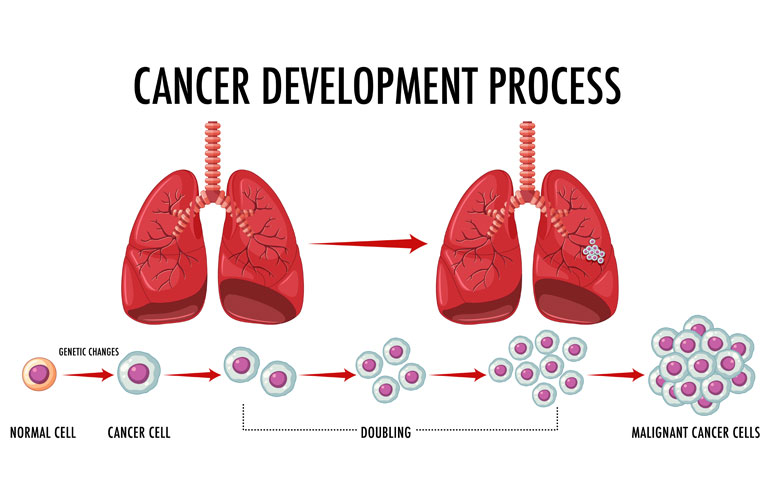- Home
- Departments
Departments Of Lung Cancer
Best-Lung-Cancer-specialist-near-meLung cancer is a type of cancer that begins in the lungs and is characterized by the uncontrolled growth of abnormal cells in lung tissue. It is one of the most common and deadliest forms of cancer worldwide, responsible for a significant number of cancer-related deaths each year.
There are two main types of lung cancer:
Non-Small Cell Lung Cancer (NSCLC): Non-small cell lung cancer accounts for approximately 85% of all lung cancer cases. It includes several subtypes, such as adenocarcinoma, squamous cell carcinoma, and large cell carcinoma. NSCLC tends to grow and spread more slowly than small cell lung cancer and may be treated with surgery, chemotherapy, radiation therapy, targeted therapy, immunotherapy, or a combination of these treatments, depending on the stage and characteristics of the cancer.
Small Cell Lung Cancer (SCLC): Small cell lung cancer accounts for approximately 15% of all lung cancer cases. It tends to grow and spread rapidly and is often diagnosed at an advanced stage. SCLC is typically treated with chemotherapy and radiation therapy, as well as targeted therapy or immunotherapy in some cases. Surgery is less commonly used for small cell lung cancer due to its aggressive nature and tendency to spread early.
Risk factors for lung cancer include smoking (including tobacco smoke and exposure to secondhand smoke), exposure to environmental carcinogens (such as radon, asbestos, arsenic, and certain chemicals), family history of lung cancer, and certain genetic mutations.
Symptoms of lung cancer can vary depending on the type and stage of the cancer but may include:
- Persistent cough
- Chest pain
- Shortness of breath
- Wheezing
- Coughing up blood
- Fatigue
- Unintended weight loss
- Loss of appetite
- Hoarseness
Early detection of lung cancer is crucial for improving treatment outcomes and survival rates. Screening with low-dose computed tomography (CT) scans is recommended for individuals at high risk for lung cancer, such as current or former smokers. Early-stage lung cancer may be treated with surgery, while advanced-stage lung cancer may require a combination of chemotherapy, radiation therapy, targeted therapy, and immunotherapy.
Overall, lung cancer is a serious and life-threatening condition that requires prompt diagnosis and comprehensive treatment. Advances in screening, diagnosis, and treatment have improved outcomes for many patients with lung cancer, but prevention efforts aimed at reducing tobacco use and exposure to carcinogens remain critical for reducing the burden of this disease.

